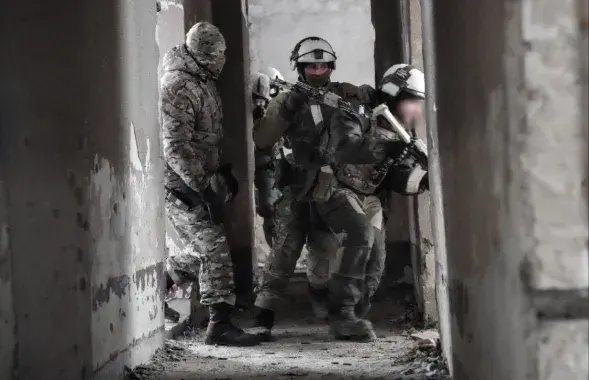Part eight: Cuban libraries and rural life
"This is my library", Aimi points at two book shelves.
When we came to the journalist, we were welcomed by a note on the doors: "Sorry. I am not at home". However, when she heard our voices, Aimi opened the door. Living in the center of Havana, she often gets disturbed by hawkers who walk around, trying to sell various things.
Friends come to Aimi in order to read books from her library. State libraries can offer nothing but propaganda literature. Even if you find something, you will have to answer so many questions that you'd better do without a book, says Aimi.
Eleser, a former basketball caoch from the town of Antila, also has his own independent library. He has much more books than Aimi. But the government confiscated all the books, including even the books for children. Today, Eleser has gathered a new collection which includes children's and science books, novels, the works by Czech, Polish and Ukrainian authors: the European experience of fighting for democracy.
Christian is showing a Vaclav Havel's book. He says:
- This book is like the Bible to us. We read it to learn how to defeat the regime.
Civil activist find life even more difficult in the province than in Havana. The dictatorship in rural areas is even more hard-line than in Havana. So called actos de repudio – the beatings of activists -- often take place.
Just across from Eleser's house and his library, there is an office of the Commitee to Defend Revolution (CDR). Therefore, the journalist is under 24-hour surveillance. Several minutes after we entered Eleser's aprtment, a woman from CDR knocked on the door in order to borrow some sugar.
In order to use Internet, people have to travel to Havna. The trip on rough Cuban roads will take up to one week. Eleser complains that he can only check his Yahoo mail box. If he does not use it for three months, it will be blocked.
Provincial journalists also have mobile phones, but they are bought under different names. However, it is very expensive to call on the mobile phones. Journalists beep each other and then head to public phones to make a call.
"There are over 40 opposition activists in Antila", Eleser says proudly. It sounds good indeed for a town with the population of 12,000.
To be continued...
When we came to the journalist, we were welcomed by a note on the doors: "Sorry. I am not at home". However, when she heard our voices, Aimi opened the door. Living in the center of Havana, she often gets disturbed by hawkers who walk around, trying to sell various things.
Friends come to Aimi in order to read books from her library. State libraries can offer nothing but propaganda literature. Even if you find something, you will have to answer so many questions that you'd better do without a book, says Aimi.
Eleser, a former basketball caoch from the town of Antila, also has his own independent library. He has much more books than Aimi. But the government confiscated all the books, including even the books for children. Today, Eleser has gathered a new collection which includes children's and science books, novels, the works by Czech, Polish and Ukrainian authors: the European experience of fighting for democracy.
Christian is showing a Vaclav Havel's book. He says:
- This book is like the Bible to us. We read it to learn how to defeat the regime.
Civil activist find life even more difficult in the province than in Havana. The dictatorship in rural areas is even more hard-line than in Havana. So called actos de repudio – the beatings of activists -- often take place.
Just across from Eleser's house and his library, there is an office of the Commitee to Defend Revolution (CDR). Therefore, the journalist is under 24-hour surveillance. Several minutes after we entered Eleser's aprtment, a woman from CDR knocked on the door in order to borrow some sugar.
In order to use Internet, people have to travel to Havna. The trip on rough Cuban roads will take up to one week. Eleser complains that he can only check his Yahoo mail box. If he does not use it for three months, it will be blocked.
Provincial journalists also have mobile phones, but they are bought under different names. However, it is very expensive to call on the mobile phones. Journalists beep each other and then head to public phones to make a call.
"There are over 40 opposition activists in Antila", Eleser says proudly. It sounds good indeed for a town with the population of 12,000.
To be continued...

















